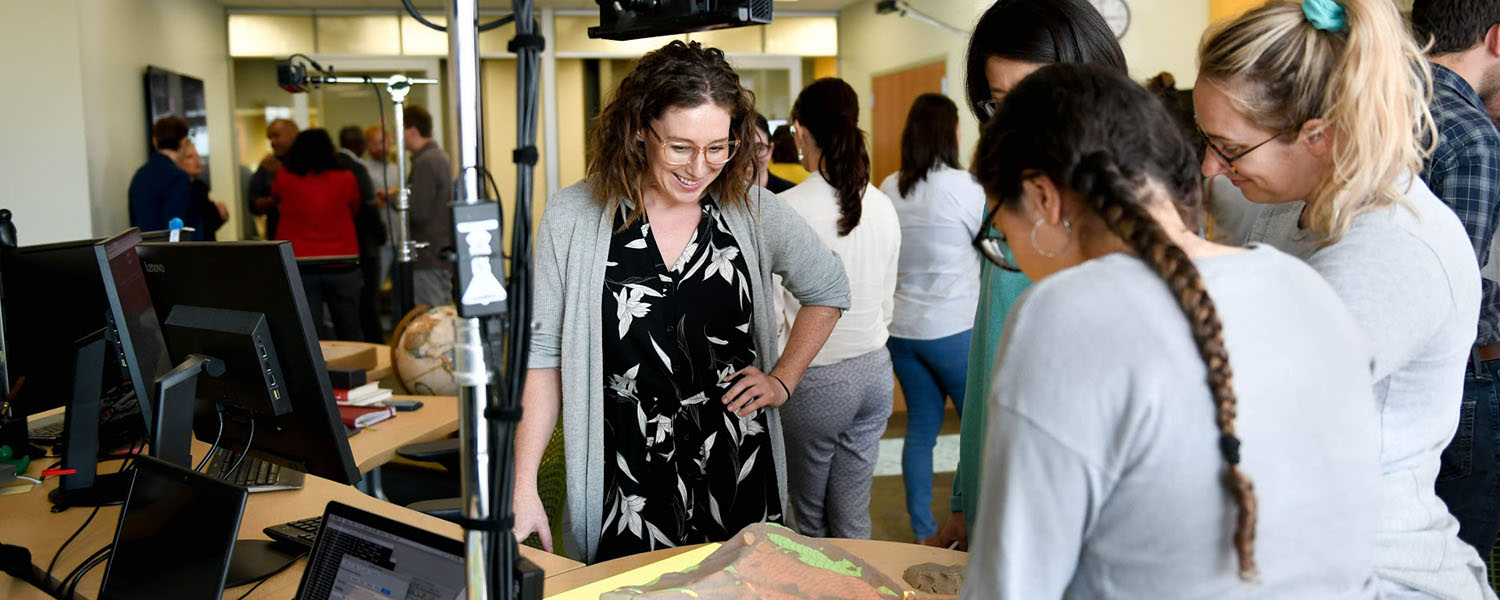
Supporting Graduate Mental Health
A Graduate Mental Health Symposium scheduled for March 2020 was canceled, but the students behind the event changed course by creating videos to support graduate students.
Early in the spring semester, a group of dedicated graduate students was planning NC State’s first Graduate Student Mental Health Symposium for March 27. Nikki Inglis, a Ph.D. student in geospatial analytics, and others with the Graduate Mental Health Alliance and the Graduate Student Association, had planned to host 220 students in person and more on a livestream, at the historic event.
But everything changed in March, and by March 23, all university classes were online, and large campus gatherings were cancelled. The group talked about postponing the symposium until fall, but the uncertainty around the global pandemic led the group to cancel the event.
“We had originally postponed the symposium, and it became clear pretty quickly that it wouldn’t happen in the fall, either. So at this point we’re not actively planning for in-person events. But we’re continuing our efforts by utilizing the resources of the speakers we had planned, and we’re hoping to bring them together in a focus group to understand the issues that we have in common and issues across the country related to graduate student mental health,” Inglis said.
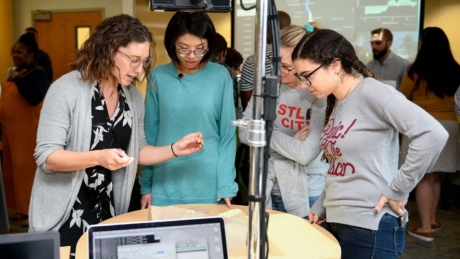
Cody Zane, a member of the planning committee who recently completed his Ph.D., approached the group in late March about creating videos of support for graduate students who were struggling with anxiety and other issues related to isolation caused by the global pandemic. Zane and other students created videos shared by the Graduate School and Graduate Student Association.
The switch to remote classes and research certainly affected students differently. But some common concerns were feelings of isolation, disconnection, guilt over not working enough and the inability to focus, Inglis said.
For Zane, being immersed for years in graduate student mental health, the videos seemed like a natural response. “I don’t think, I just do,” he said. “I can’t be the only one – everyone is feeling this (pandemic stress) in some way. On the video, I just talked to myself. So I thought, let’s talk from different perspectives.”
In the first video, Zane urged students to avoid isolation, while practicing social distancing. G Solorzano followed up with a video addressing Latino students in Spanish, urging them to adjust their expectations for how much they can accomplish in a virtual world and offering advice for students teaching remotely. In July, Inglis shared a video on dealing with grief and the “imposter syndrome.”
At the beginning of the school year, Solorzano did a virtual panel discussion with new Ph.D. students, talking with them about what it was like to start their programs during a time when there was little engagement on campus. It became the fourth video of the series.
Inglis would like to continue the video series – students sharing with other students. She is also interested in presenting some webinars to address topics that the symposium would have covered.
The team that planned for the symposium had put together an impressive list of speakers, and even had students at other universities ask to participate. Since NC State graduate students and guests had filled the event, the Graduate Mental Health Alliance decided to livestream the symposium for offsite viewing.
The symposium speakers included:
- Teresa Evans, assistant professor, Department of Pharmacology at the University of Texas-San Antonio, co-author of “Evidence for a mental health crisis in graduate education,” Nature Biotechnology, 2018
- Nathan Vanderford, assistant professor, Department of Toxicology and Cancer Biology, University of Kentucky, co-author of “Evidence for a mental health crisis in graduate education,” Nature Biotechnology, 2018
- Rupert Nacoste, Alumni Distinguished Undergraduate Professor of Psychology, NC State University
- Philippe Buhlmann, director of graduate programs, chemistry, University of Minnesota
- Suzanne Ortega, president, Council of Graduate Schools and advisory committee member for the new initiative, Supporting Mental Health and Wellness of Graduate Students
- Zack Burton and Elisa Hofmeister, founders of Manic Monologues and graduate students at Stanford University
- Peter Harries, dean of the Graduate School, NC State University
The goal of the symposium according to Inglis, was to, “move past the point of talking about a graduate student mental health crisis. What are the deep-seated causes? How do we address this, and what resources do we need,” she said.
In addition to creating the videos, the alliance members showed tremendous resilience after the university moved operations online. As the months wore on, the monotony was taking its toll, Zane said. And as research facilities at NC State reopened, Inglis said that returning to the lab became a “new tedium,” learning to complete lab work in a shift.
The Mental Health Alliance plans to continue efforts … about advocacy, activism, outreach and trying to really create that institutional change.
Zane completed his Ph.D., with a virtual defense over the summer. In desperate need of new scenery, Inglis drove across the country to spend a few months with her mom in Colorado, where she stayed for fall semester when her classes all became virtual.
Inglis has thought about bringing in some of the original symposium speakers to do virtual talks to share with students. And she’s agreed to take on a graduate student mental health survey for NC State that has been in the works, though she knows that the pandemic could skew the results toward higher anxiety among students.
The issue of graduate student mental health isn’t in dispute today – it’s a given, she said. The alliance wants to move toward action now – what to do about it.
“I’m planning on continuing a video series and perhaps an online seminar series, something where we can upload videos and sort of encourage and cultivate your conversation about those topics,” she said. “I know we’re all trying to figure out this new normal, and the Mental Health Alliance plans to continue efforts that aren’t just about a symposium, but also about advocacy, activism, outreach and trying to really create that institutional change.”
View all the videos created by graduate students:
Four tips on dealing with imposter syndrome during COVID-19, with Nikki Inglis
You Are Not Alone, with G Solorzano
You Are Not Alone, with Cody Zane
Starting Graduate School Amidst a Pandemic, panel discussion with G Solorzano
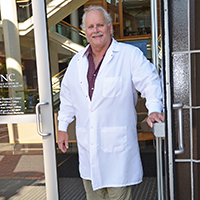
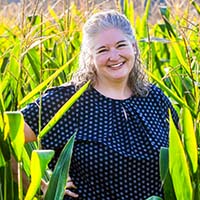



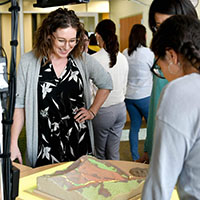


View Comments 0